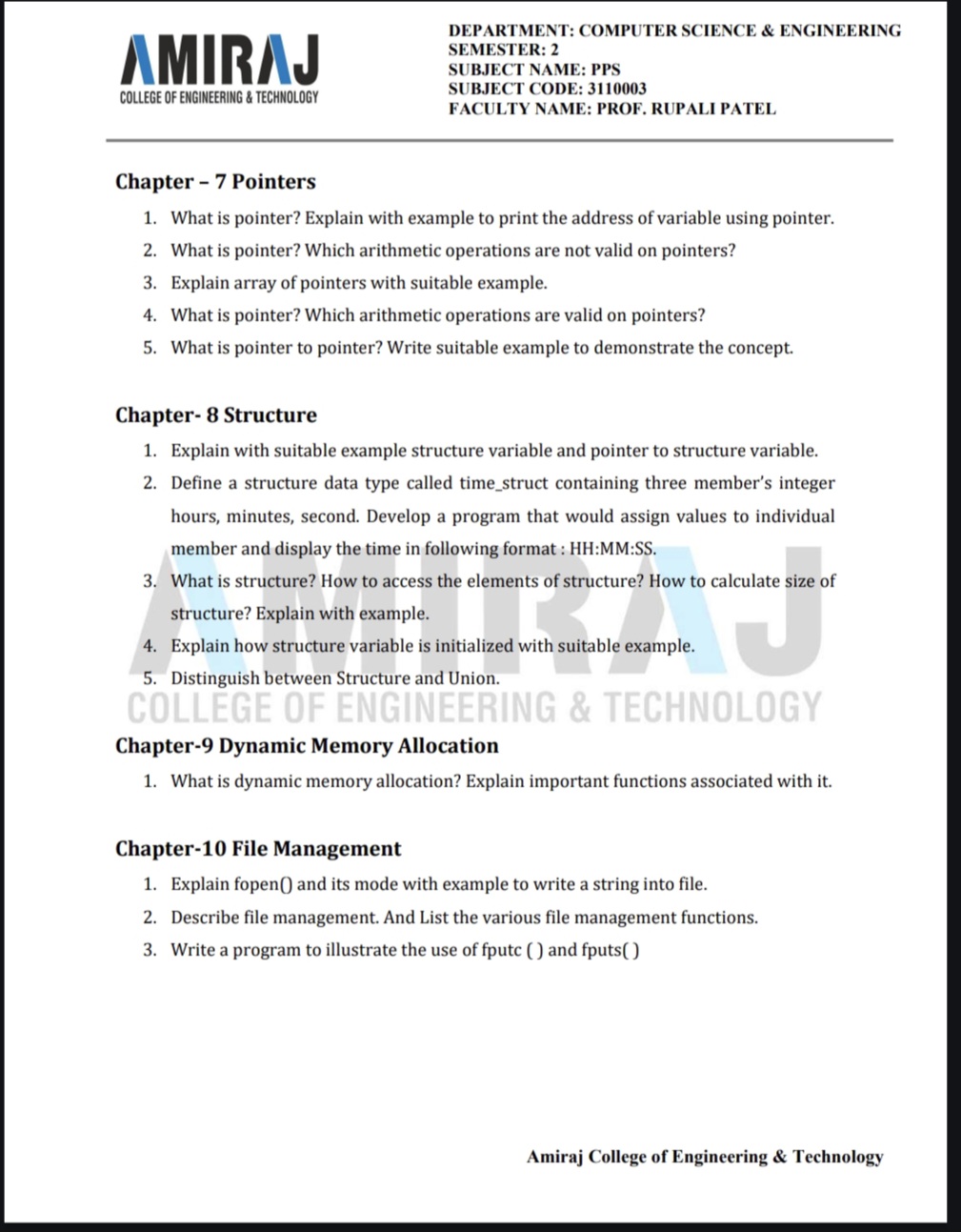1. What is pointer? Explain with example to print the address of variable using pointer. 2. What is pointer? Which arithmetic operations are not valid on pointers? 3. Explain array... 1. What is pointer? Explain with example to print the address of variable using pointer. 2. What is pointer? Which arithmetic operations are not valid on pointers? 3. Explain array of pointers with suitable example. 4. What is pointer? Which arithmetic operations are valid on pointers? 5. What is pointer to pointer? Write suitable example to demonstrate the concept. 6. Explain with suitable example structure variable and pointer to structure variable. 7. Define a structure data type called time_struct containing three member's integer hours, minutes, second. Develop a program that would assign values to individual member and display the time in following format: HH:MM:SS. 8. What is structure? How to access the elements of structure? How to calculate size of structure? Explain with example. 9. Explain how structure variable is initialized with suitable example. 10. Distinguish between Structure and Union. 11. What is dynamic memory allocation? Explain important functions associated with it. 12. Explain fopen() and its mode with example to write a string into file. 13. Describe file management. And List the various file management functions. 14. Write a program to illustrate the use of fputc() and fputs().

Understand the Problem
The question consists of a series of programming-related queries primarily focused on concepts like pointers, structures, dynamic memory allocation, and file management in computer science. It seeks explanations and examples for various theoretical and practical aspects of these topics.
Answer
Pointers store memory addresses, allowing arithmetic operations like addition and subtraction. Multiplication and division are invalid.
A pointer in C is a variable that stores the memory address of another variable. You can perform arithmetic operations such as addition and subtraction on pointers, but multiplication and division are not valid. Example of printing a variable's address:
#include <stdio.h>
int main() {
int var = 10;
int *ptr = &var;
printf("Address of var: %p", ptr);
return 0;
}
Answer for screen readers
A pointer in C is a variable that stores the memory address of another variable. You can perform arithmetic operations such as addition and subtraction on pointers, but multiplication and division are not valid. Example of printing a variable's address:
#include <stdio.h>
int main() {
int var = 10;
int *ptr = &var;
printf("Address of var: %p", ptr);
return 0;
}
More Information
Pointers offer efficiency in handling data and performing operations. Memory management and manipulation become more direct, aiding in faster and more efficient code.
Tips
Ensure proper memory allocation and deallocation to avoid memory leaks or undefined behavior.
Sources
- C Pointers - GeeksforGeeks - geeksforgeeks.org
- Pointer Arithmetic In C & Illegal Arithmetic Explained - Unstop - unstop.com
AI-generated content may contain errors. Please verify critical information